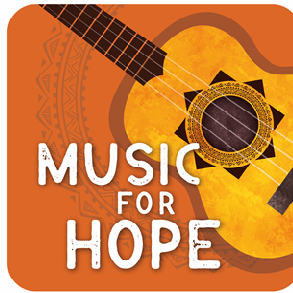Interview and writing: Giulia Daniele & Lucia Caporalini. Originally published in Harbour – a Merseyside magazine produced by people with English as a second language.
This story starts with a tale of despair and tenacity – as many do. For us, it started on a windy Liverpool afternoon, when we met Tony Luna for the first time and we were introduced not only to an incredibly warm and enthusiastic person, but also to a world of hope and brightness.
Tony’s story starts with a war. In the 80s, when he was just a kid, his native El Salvador was being torn apart by civil war. Families were separated, communities destroyed. People forced to move to different countries to protect themselves and their loved ones. Often to never see each other again. Tony explained all this to us using simple words, because what was important was not the history, but being able to pass on the horrible reality and consequences that something so immensely disruptive as a war could create on a person, let alone on an eight-year-old child.
Tony was born in exile, in the place where some of his family members were at the time. He learnt to love his country through the words and stories of his community. Even before he could learn what civil war was, he learnt what it means to be part of a community. He spoke of his country with a note of sadness in his voice, but there was always a smile on his face whenever he talked about the people in his community, the people he grew up with, whom he knew once – one by one.
Years went by, people kept fighting to be reunited with their families and to be able to inhabit their lands again. When the civil war ended, estranged Salvadorian people started to hope again: after years they could finally return to their homeland. And now that they had created such strong and precious communities, they hoped to return to their country together, as units.
Unfortunately it was not permitted until the 90s. When thousands of Salvadorians were allowed back to their country they were assigned barren lands they could use to grow their own food. It was unbearable, and soon communities had to start moving against, in an endless exodus that brought them once again to scatter across the countries. And maybe they didn’t know it yet, but people from all over the world had started to listen to them and support their protests.
One of them was Katherine Rogers. Katherine was just a music student at the University of Manchester back then, but she was committed to bringing something special to the communities of El Salvador. When she first visited the country, she experienced first hand the strong bond between the individuals, the importance of collaboration and communal decision making. How everyone counts, and every opinion deserves to be heard. But she also became aware of the fragility of mental well-being among young people who were daily exposed to gang violence and traumatic episodes. So, she decided to help the communities with the thing she knew best: music. Although those communities did not have much, they cherished a fundamental principle – Hope. Hope for a better life. Better possibilities. New beginnings. And what is music, if not Hope? A way out? Freedom?
When Katherine came back to the UK in 1995, she started raising money to send to El Salvador. This marked the beginning of the Music for Hope project. In the same year, she came back to El Salvador, where she stayed for two years, and started teaching music to children. The same children then started teaching music to other children, and this encouraged more and more people to take part in the project. Tony was around 8-9 years old at the time and followed the project throughout its whole development until he became the coordinator.
For Tony, Music for Hope is more than teaching young children music and providing them with technical equipment. Music for Hope is their saviour. And music is the ultimate form of freedom. The harbour they can feel safe within. An escape from gangs and violence, the path to a richer form of life. Music for Hope saves lives. It gifts young people with new possibilities, so that they can see more meaning in life than just being part of a gang. Music installed in the residents of El Salvador a stronger sense of community. Music is education, communication, support. It brings people together and empowers them with a greater measure of independence, and solidarity. Music and Hope are deeply rooted in El Salvador’s communities, and gives them the power of better choices. However, sometimes we don’t get to choose.
Then, Tony had to leave El Salvador. He flew to the UK, where he was supposed to stay for only three months, but ended up staying for good. Although the UK meant a fresh new start for him, Tony always missed his country. And this feeling never fades. The bond between communities, the effortless and never-ending support. The beauty of belonging. The warmth of the people. That even if you leave them, they never leave you. Even if Tony left El Salvador, he never gave up on Hope. He still advocates for it.
What does the future hold for Music for Hope? More space for creativity, solidarity, collaboration. And of course, music. The music that shaped them and him. The music of those children, and the children to come. The music of Katherine, and all those who supported her. Those who never failed to believe that life is so much better if we go through it together. This is Music for Hope: symphony that never gets old. An evergreen melody. A hymn to a better future.



